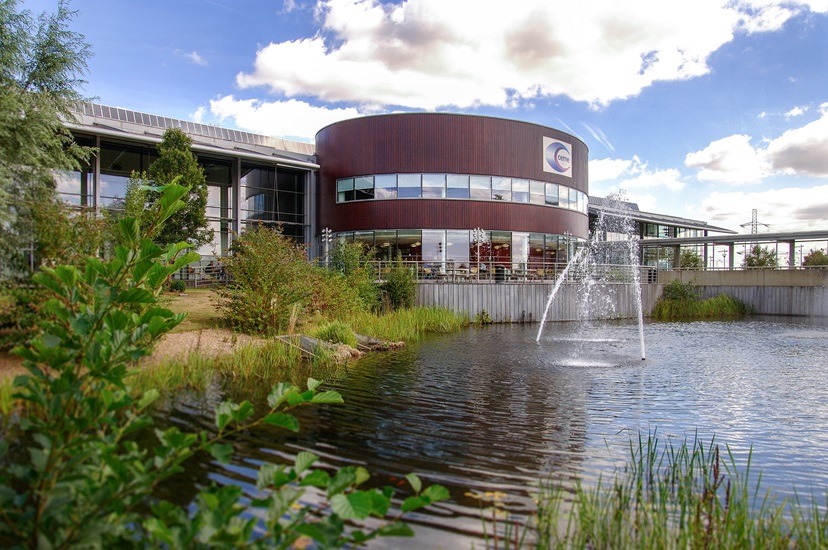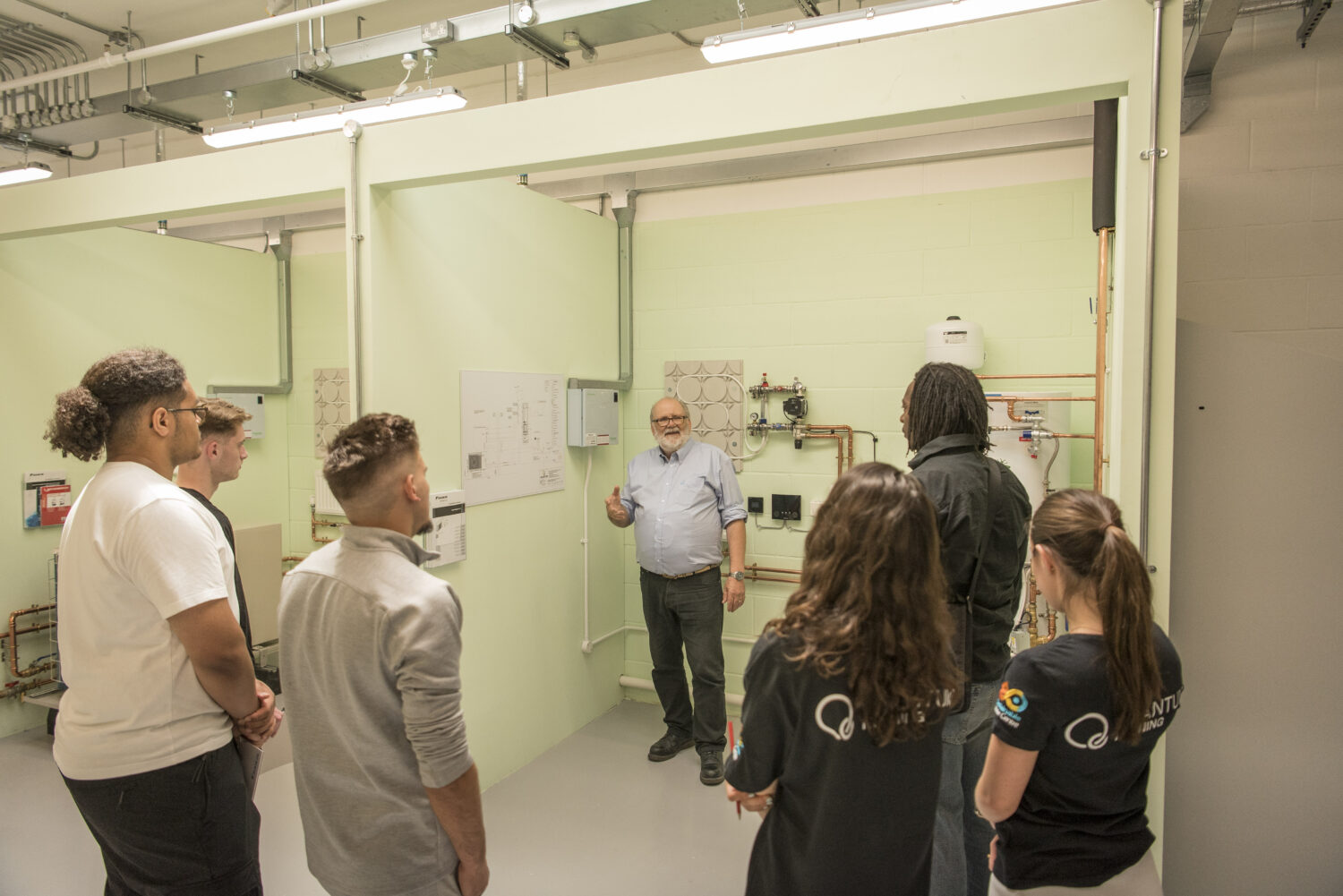Introduction: The UK’s Critical Green Energy Transition
The UK energy industry is at a critical crossroads, aiming for net-zero emissions by 2050 while ensuring affordable, secure energy. With COP29 approaching, focus is on sustainable energy transitions and the green skills needed to drive them. For the UK, this involves investing in renewables like offshore wind, solar, and hydrogen, and addressing the skills gap to build a workforce for a cleaner, greener future. This article explores how the UK is preparing to meet these challenges and the key role green skills will play in shaping its green energy landscape.
COP29: A Crucial Moment for Global Climate Action
The 29th Conference of the Parties to the UN Framework Convention on Climate Change (COP29), set to take place in Baku, Azerbaijan, from November 11 to 22, 2024, represents a crucial moment for accelerating global action against the climate crisis. With record-breaking global temperatures and increasingly severe weather events impacting communities worldwide, COP29 will convene leaders from governments, businesses, and civil society to forge practical solutions to this defining challenge.
A central theme of COP29 will be climate finance, as mobilizing trillions of dollars is essential to cutting greenhouse gas emissions and safeguarding lives and livelihoods from the escalating impacts of climate change. Additionally, the conference marks a key milestone for countries to present updated national climate action plans under the Paris Agreement, ahead of the 2025 deadline. These plans, if ambitious and effectively implemented, could help cap global warming at 1.5°C above pre-industrial levels while driving investment aligned with the Sustainable Development Goals.

UK’s Role at COP29: A Strong Commitment to Climate Action
As COP29 reaches its halfway point, the climate summit—nicknamed the “Finance COP”—has so far been dominated by critical conversations around funding the global response to the climate crisis. Yet, much of the hard work is still ahead, with the second week poised to tackle pivotal questions: Who will finance the necessary actions? And what commitments will shape the next round of Nationally Determined Contributions (NDCs)?
Notably, Brazil and the United Kingdom have stepped up early, presenting ambitious NDCs ahead of the 2025 deadline. The UK pledged an 81% reduction in emissions by 2035 compared to 1990 levels, alongside £3 billion in international climate finance, with a significant focus on nature-based solutions like forest conservation. Meanwhile, Brazil announced a bold target to reduce greenhouse gas emissions by up to 67% by 2035 and launched new initiatives to mobilize capital for ecological transformation. Both nations have set an example for how countries can link climate ambition to actionable investment strategies.
As the world advances towards its green energy future, there is an urgent need to focus on the green skills that will be necessary to meet the UK’s net-zero goals. For industries like renewable energy, low-carbon technologies, and energy efficiency, building a skilled workforce is just as critical as the technologies themselves.
Quantum’s Role in Bridging the Green Skills Gap
Quantum plays a crucial role in equipping the next generation of workers with the skills needed for this green transition. Through its renewable energy training facilities, Quantum provides hands-on training to ensure the UK workforce is prepared for the demands of emerging green technologies. Whether it’s ASHP, Solar PV, or Retrofit, Quantum is actively working to deliver practical, cutting-edge training programs that can support the scaling of green industries in the UK. By focusing on the development of green skills, Quantum is helping to close the skills gap and build a workforce ready to lead in the global green economy.
Carbon Market and Climate Finance
Progress on carbon markets also took center stage, with COP29 endorsing a global framework under Article 6 of the Paris Agreement. This marks a significant step toward establishing clear standards for carbon credit trading and integrating high-integrity forest conservation into voluntary markets. As a leader in renewable energy and green skills, Quantum sees these developments as essential to creating a thriving green economy—one that not only reduces emissions but also provides opportunities for reskilling and workforce development across key sectors.
As negotiations enter the critical second week, the spotlight will shift to Nature Day, where we expect renewed focus on nature-based solutions and equitable strategies for forest conservation. Quantum believes this is an opportunity to emphasize the connection between sustainable practices, investment in renewable infrastructure, and the green skills needed to make these initiatives successful. Aligning finance with practical training and workforce development is not only crucial to meeting climate goals but also key to unlocking a just and inclusive energy transition.
To find out more and to keep updated with COP29 please click here: PM remarks at COP29: 12 November 2024 – GOV.UK
The UK’s Green Energy Transition: Powering Towards Net Zero
As part of the UK’s strategy to reach net zero emissions by 2050, a significant focus is on transitioning to an electricity system that relies on 100% zero-carbon generation. Renewable energy will play a central role in achieving this target, and the UK has already made substantial progress in incorporating renewable energy sources into its electricity mix.
Current State of Renewable Energy in the UK
Today, renewable energy sources are a major part of the UK’s electricity supply. The UK has made remarkable strides in clean power generation, with a significant proportion of electricity now sourced from renewables such as wind, solar, bioenergy, and hydropower.
In 2020, renewable energy accounted for 43% of the UK’s electricity generation, marking a historic milestone. By May 2023, the UK reached another significant achievement, producing its trillionth kilowatt-hour (kWh) of electricity from renewable sources—enough to power the country’s homes for 12 years. The pace of renewable energy generation is accelerating, and projections suggest that it will take just over five years to reach the next trillionth kWh.
A Rapid Growth in Renewable Energy Use
The UK’s renewable energy share has grown dramatically over the past few decades. In 1991, renewable sources made up just 2% of electricity generation. By 2013, this had increased to 14.6%, and by 2019, zero-carbon electricity generation overtook fossil fuels for the first time. In August 2019, the UK set an all-time high of 85.1% renewable generation, with wind alone accounting for 39%, solar for 25%, nuclear for 20%, and hydro for 1%.

The contribution of individual renewable sources in 2023 was as follows:
- Wind power: 29.4% of total electricity generation
- Biomass: 5% of the renewable mix
- Solar: 4.9% of the renewable mix
- Hydropower (including tidal): 1.8% of the renewable mix
Breaking Records: Renewable Energy Milestones
The UK continues to set new records in renewable energy production. In 2022, zero-carbon generation reached a record 138 terawatt-hours (TWh), and in 2023, it remained strong at 133 TWh. December 2023 marked the 15th consecutive month where zero-carbon generation outpaced fossil fuels. Coal use has also significantly decreased, falling by over 97% since 2013.
The maximum contribution of zero-carbon power in the generation mix was 87.6% on January 4, 2023, and wind generation hit new records in 2023, with the largest-ever wind power generation on December 21, reaching 21.8GW. Solar power also reached new heights in April 2023, with a record 10.971GW generated.
The Path Forward: Expanding Renewable Capacity
The UK is on track to continue increasing renewable energy generation. The government has set ambitious plans to scale up offshore wind capacity to 50GW by 2030, supported by a £200 million investment and other financial incentives. Solar capacity could also rise to 70GW by the same year. Combined with other low-carbon sources like nuclear, which contributed 14.2% in 2023, the UK’s green energy infrastructure is on course to meet the government’s target of 100% zero-carbon electricity by 2035 and ultimately achieve net zero emissions by 2050.
Energy Efficiency: A Cornerstone of the UK’s Energy Strategy
Improving energy efficiency plays a crucial role in the UK’s Energy Security Strategy. By reducing the energy consumption of homes and businesses, we can not only lower energy bills but also enhance energy security, make buildings more comfortable, and contribute to reaching the government’s net-zero goals.
The Importance of Energy Efficiency
Energy efficiency is a key part of reducing the UK’s reliance on fossil fuels and improving our energy security. Over 90% of UK homes are heated by fossil fuels, which contribute to a third of the country’s total gas consumption. Given recent spikes in gas prices, households are particularly vulnerable to rising costs. By improving the energy efficiency of homes, families can save up to 20% on their heating bills and reduce the need for imported gas, making homes more affordable and sustainable in the long run.
Energy efficiency measures, such as double glazing, insulation, and energy-saving appliances, can help reduce energy waste. These initiatives not only lower household expenses but also decrease overall demand for energy, thus contributing to the country’s efforts to combat climate change.
Support Measures Under the British Energy Security Strategy
To support consumers and accelerate the adoption of energy-efficient measures, the UK government has introduced a range of financial assistance programs as part of its broader energy security efforts.
The British Energy Security Strategy builds on several key government initiatives, including the Prime Minister’s 10-Point Plan and the Net Zero Strategy. As part of this strategy, the government has allocated billions of pounds to help consumers reduce their energy consumption and ease the burden of high energy costs.
One of the most significant measures includes a £15 billion package aimed at reducing the impact of rising global energy prices, which includes direct financial support such as:
- A £400 discount on energy bills, non-repayable, to be distributed by energy suppliers from October 2022 onward.
- A £150 Council Tax discount to help with the cost of living.
- Winter Fuel Payments of up to £300 for pensioners and a Warm Home Discount offering up to £140 for over 2.2 million low-income households.
These measures are designed to alleviate immediate financial pressure on households while supporting the broader transition to a low-carbon energy system.
Government Initiatives to Improve Energy Efficiency
The UK government has committed to making substantial investments in energy efficiency. Among the most significant actions is the Heat and Buildings Strategy, which includes £3.9 billion of support aimed at improving the energy efficiency of homes and public buildings. This strategy is expected to upgrade 700,000 homes by 2025, with a long-term goal of achieving low-carbon heating systems in all homes by 2050.

Additional funding includes:
- A £1 billion per year Energy Company Obligation (ECO), which helps over 133,000 low-income households annually improve their homes’ energy efficiency.
- £1.8 billion for low-income households through the Home Upgrade Grant and Social Housing Decarbonisation Fund, helping to install energy-saving measures like insulation and efficient heating systems.
- Over £1.4 billion has been earmarked to decarbonize public sector buildings, which will also contribute to the overall reduction in energy use.
The government’s commitment to decarbonizing homes and buildings is a cornerstone of its broader strategy to reduce carbon emissions and improve energy efficiency across the nation.
How Energy Efficiency Benefits Consumers
By improving the energy efficiency of homes, the government is not only helping to reduce energy consumption but also ensuring that families save money. For example, households in low-income brackets have already saved approximately £300 annually through various energy-saving initiatives. These savings will increase as more homes are upgraded with insulation, better heating systems, and energy-efficient appliances.
To make energy-saving improvements more accessible, the government is offering incentives such as zero VAT on energy-saving materials like insulation and heat pumps for the next five years. The £450 million Boiler Upgrade Scheme will further incentivize the installation of energy-efficient heat pumps, reducing reliance on fossil fuels.
Additionally, to accelerate the transition to low-carbon heating, the government plans to phase out the sale of new gas boilers by 2035. To achieve this, it is supporting the installation of 600,000 heat pumps annually by 2028, providing financial incentives and expanding heat networks across the country.
Achievements in Energy Efficiency
Significant progress has already been made in improving energy efficiency across the UK. The number of homes with an Energy Efficiency Rating (EPC) of C or higher has increased from 13% in 2010 to 46% today. Moreover, around 84% of new builds now meet the top energy efficiency standards, with 40% of homes in England now rated EPC B or C.
In addition, the UK has made considerable strides in improving its public sector buildings, with £6.6 billion allocated for building decarbonization throughout this parliamentary term.
Supporting Low-Income Households
The government has placed a strong emphasis on supporting the most vulnerable households, especially those at risk of fuel poverty. In addition to the Winter Fuel Payments and Warm Home Discount, the government has expanded the Energy Company Obligation (ECO) to help more low-income households. Over 3.4 million measures have already been installed, and the government has committed to a £4 billion extension of the scheme over the next four years.
For those struggling with rising costs, the government offers Cold Weather Payments and additional funding through the Household Support Fund, which provides financial assistance to households in need.
Empowering Property Owners to Improve Energy Efficiency
To help property owners make energy-efficient improvements, the government is fostering the development of a green finance market. Through initiatives like the Green Home Finance Innovation Fund, homeowners can access affordable loans and financing options for energy-saving measures. The £1.8 million Green Home Finance Innovation Fund was one of the early steps to support the development of green financial products for homeowners, with plans for further programs to enhance access to low-cost green financing.
Moreover, the government is working with mortgage lenders to provide support for homeowners seeking to improve the energy performance of their properties, with potential savings of £196 per property by 2030.
Conclusion
The UK is making significant strides towards its net-zero goals, with renewable energy, energy efficiency, and green skills at the forefront of its strategy. As the country accelerates its transition to cleaner energy, the importance of a skilled workforce to support this shift cannot be overstated. Through investments in renewables, energy efficiency measures, and training programs, the UK is building a sustainable, resilient energy system. As the global community prepares for COP29, the UK’s commitment to reducing emissions, enhancing energy security, and supporting its workforce positions it as a leader in the global green transition.
If you want to find out more about what Quantum can offer please get in touch with [email protected] or visit our website here: https://fe.thequantumgroup.uk.com/green-skills-courses-2/


























